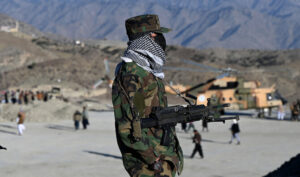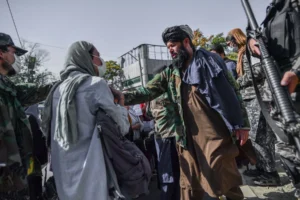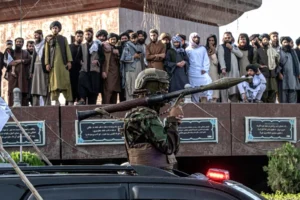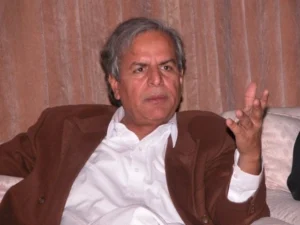The recent border clash between Pakistan and Afghanistan has escalated into one of the most severe confrontations in years, revealing a deeply troubling pattern of ingratitude from Afghanistan despite decades of Pakistani support. The overnight clashes of October 11-12, 2025, which resulted in 23 Pakistani soldiers martyred and 29 wounded, represent more than just military confrontation; they symbolize Afghanistan’s shocking betrayal of a nation that provided sanctuary during its darkest hours.
According to Pakistan’s military statement, over 200 Taliban and affiliated fighters were killed in the fighting, while Pakistan successfully captured 21 Afghan checkposts along the disputed Durand Line. The Taliban disputed these casualty figures, claiming 58 Pakistani soldiers were killed while acknowledging only 9 Afghan deaths. However, beyond the conflicting statistics lies a more fundamental question: how did Afghanistan transform from beneficiary to aggressor against its greatest historical ally?
Pakistan’s Decades of Sacrificial Support
Pakistan’s support for Afghanistan spans over four decades, beginning during the Soviet invasion of 1979. Pakistan became the primary conduit for international assistance to Afghan mujahideen, hosting over 3 million Afghan refugees at tremendous economic and social cost. The country established over 300 refugee camps and facilitated billions in aid through Operation Cyclone, effectively serving as Afghanistan’s lifeline during its struggle for independence.
Even after the Soviet withdrawal, Pakistan continued its unwavering support. It became one of only three countries to officially recognize the Taliban regime in 1996, providing military advisers, weapons, fuel supplies, and diplomatic backing. Following 2001, Pakistan maintained significant humanitarian and development assistance, contributing over $1 billion in aid for Afghanistan’s reconstruction.
Most recently, Pakistan pledged $28.4 million in humanitarian assistance in 2021, including 50,000 metric tonnes of wheat and medical supplies. The country continues hosting approximately 1.3 million registered Afghan refugees, shouldering substantial welfare responsibilities that strain Pakistan’s own resources.
The TTP Sanctuary Problem and the Taliban’s Refusal
Despite Pakistan’s consistent demands that Afghanistan take action against Tehreek-e-Taliban Pakistan (TTP) sanctuaries, the Taliban has remained defiant. The UN Sanctions Monitoring Team reported in July 2024 that TTP operates with 6,000-6,500 fighters in Afghanistan and has received increased Taliban support. The report explicitly noted that “Taliban support to TTP also appears to have increased” and they have “proved unable or unwilling to manage the threat”.
This refusal becomes more egregious when considering Pakistan’s recent casualties. The TTP killed 11 Pakistani soldiers in Kurram district just days before the border clash, using roadside bombs and heavy weaponry. Pakistan has suffered over 800 TTP attacks recently, with an average of 45.8 attacks per month in 2022 compared to 14.5 in 2020.
Border Clashes Reveals Open Taliban-TTP Alliance
When Pakistan finally conducted airstrikes on October 10, 2025, targeting TTP sanctuaries in Kabul and Paktika province, the Taliban’s response was revealing. Instead of condemning TTP activities or addressing Pakistan’s legitimate security concerns, the Taliban launched coordinated attacks on Pakistani border posts across multiple locations. This represented a clear escalation from providing passive sanctuary to active military support for anti-Pakistan militants.
The Taliban’s defense ministry openly accused Pakistan of sovereignty violations while simultaneously providing cover for TTP operations. Their coordinated response across six different border locations demonstrated premeditated support for anti-Pakistan elements, confirming that Afghanistan now actively facilitates terrorism against its benefactor.
Afghanistan’s Strategic Pivot to India
Perhaps most shocking is Afghanistan’s simultaneous diplomatic outreach to India during this crisis. Taliban Foreign Minister Amir Khan Muttaqi’s visit to India in October 2025 culminated in backing India’s sovereignty over Jammu and Kashmir, a direct affront to Pakistan’s core interests. This diplomatic breakthrough included India’s decision to reopen its embassy in Kabul and expand development assistance.
The timing was deliberately provocative, occurring as Pakistani soldiers were dying in border clashes. Afghanistan’s willingness to strengthen ties with India while attacking Pakistan reveals a calculated betrayal that ignores decades of Pakistani sacrifices. The Taliban expressed readiness to explore “other options” if Pakistan did not want good relations, demonstrating remarkable arrogance toward their historical patron.
The Unforgivable Ingratitude
The current crisis exposes Afghanistan’s profound ingratitude despite Pakistan’s extraordinary support. Rather than reciprocating Pakistan’s generosity, hosting millions of refugees, facilitating billions in aid, providing military backing during the Soviet occupation, and maintaining humanitarian assistance, Afghanistan has chosen confrontation and strategic realignment with Pakistan’s adversaries.
The Taliban’s actions represent not just policy disagreements but moral bankruptcy. They have transformed Pakistan’s sanctuary into a launching pad for terrorism, rejected legitimate security demands, launched unprovoked military attacks, and pursued diplomatic relationships designed to isolate their benefactor. This betrayal is particularly unconscionable given Pakistan’s sacrifices during Afghanistan’s most vulnerable periods.
The October 2025 border conflict thus represents more than military confrontation; it symbolizes Afghanistan’s shocking transformation from grateful recipient to ungrateful aggressor. Pakistan’s restraint in the face of such betrayal demonstrates remarkable diplomatic maturity, but Afghanistan’s ingratitude has fundamentally altered regional dynamics. The Taliban’s choice to bite the hand that fed them will likely define Afghanistan-Pakistan relations for generations to come, marking one of history’s most egregious examples of international ingratitude.








